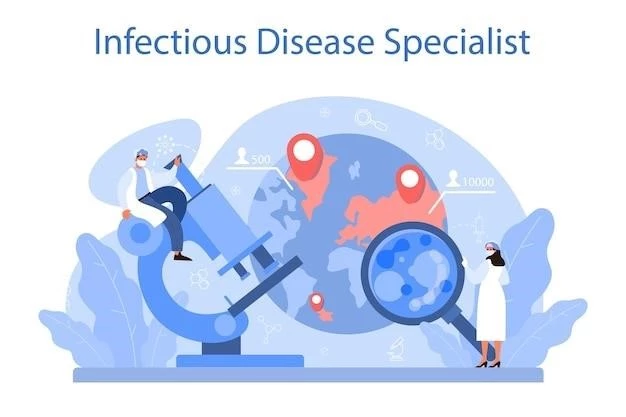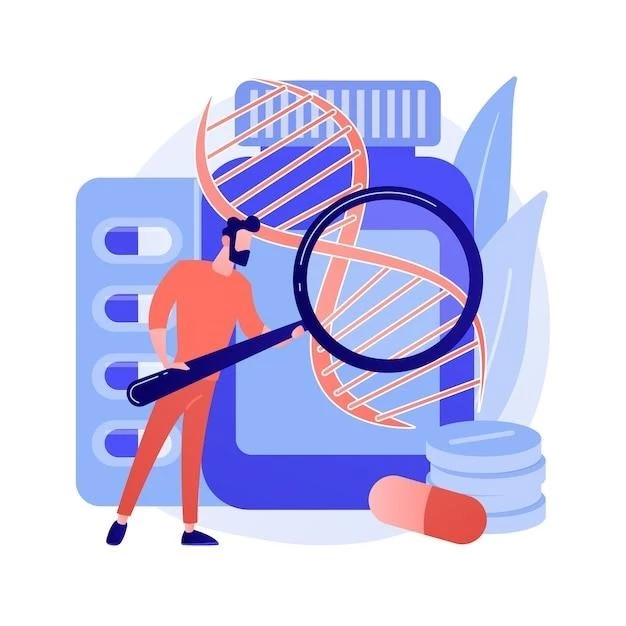Lysosomal Storage Disease
Lysosomal storage disease is a rare genetic enzyme storage disorder affecting organelles called lysosomes. This article will delve into the metabolic impact‚ neurological symptoms‚ and the importance of genetic testing for accurate diagnosis. Furthermore‚ it will explore treatments and therapies available for managing this complex condition.
I. Introduction to Lysosomal Storage Disease
Lysosomal storage disease is a group of rare genetic disorders characterized by deficiencies in enzymes responsible for breaking down various substances within the lysosomes. Lysosomes are cellular organelles involved in digestion and waste removal. When specific enzymes are deficient‚ substances accumulate and disrupt normal cell function.
These metabolic errors lead to the progressive accumulation of substrates like lipids‚ complex sugars‚ and proteins within cells‚ impacting various tissues and organs. Due to the wide range of enzymes and substrates involved‚ lysosomal storage diseases exhibit significant heterogeneity in clinical presentation and severity.
Patients with lysosomal storage disease may experience a spectrum of symptoms‚ including but not limited to neurological impairment‚ skeletal abnormalities‚ organomegaly‚ and developmental delays. The onset and progression of symptoms can vary widely between different types of lysosomal storage disorders.
Diagnosis of lysosomal storage disease requires a thorough evaluation of symptoms‚ biochemical testing‚ and often genetic testing to identify the specific enzyme deficiency. Due to the rarity and complexity of these disorders‚ accurate diagnosis is crucial for implementing appropriate treatment strategies and disease management.
While lysosomal storage diseases are currently incurable‚ advancements in research have led to the development of enzyme replacement therapies‚ substrate reduction therapies‚ and gene therapies aimed at addressing the underlying metabolic defects. Early detection and intervention are essential in improving outcomes and quality of life for individuals affected by lysosomal storage disease.
II. Understanding Lysosomal Storage Disorder
Lysosomal storage disorders are a group of rare genetic conditions caused by defects in enzymes responsible for breaking down various substances within the lysosomes. These enzymes are essential for the metabolism of lipids‚ proteins‚ and sugars. When one of these enzymes is deficient or dysfunctional‚ substrates accumulate within the lysosomes‚ leading to cellular dysfunction and tissue damage.
There are over 50 known types of lysosomal storage disorders‚ each resulting from a specific enzyme deficiency. Examples include Gaucher disease‚ Pompe disease‚ Fabry disease‚ and Niemann-Pick disease. These disorders can affect multiple organ systems‚ including the brain‚ liver‚ spleen‚ bones‚ and skin.
Individuals with lysosomal storage disorders may present with a wide range of symptoms depending on the type and severity of the condition. Common symptoms include developmental delay‚ organ enlargement‚ skeletal abnormalities‚ skin lesions‚ respiratory issues‚ and neurological impairments. The age of onset and rate of disease progression vary among different disorders.
Understanding the underlying genetic mutations that cause lysosomal storage disorders is crucial for accurate diagnosis and treatment. Genetic testing plays a key role in identifying the specific gene mutations responsible for the enzyme deficiencies. This information not only aids in confirming the diagnosis but also helps in assessing the risk of passing the condition to future generations.
Research into lysosomal storage disorders has advanced our knowledge of the molecular mechanisms involved in these conditions. Ongoing studies focus on developing new treatment modalities‚ such as gene therapy and small-molecule inhibitors‚ to target the root cause of the disorders. Improved understanding of the pathophysiology of lysosomal storage disorders is essential for the development of more effective therapies and potential cures in the future.
III; Symptoms and Diagnosis
Symptoms of lysosomal storage diseases vary depending on the specific type of disorder but often involve a combination of physical‚ neurological‚ and systemic manifestations. Common symptoms include developmental delay‚ organomegaly‚ skeletal abnormalities‚ skin lesions‚ vision and hearing impairment‚ respiratory issues‚ and cognitive decline.
Diagnosing lysosomal storage diseases can be challenging due to the rarity and heterogeneity of these disorders. Healthcare providers rely on a combination of clinical evaluation‚ imaging studies‚ biochemical testing‚ and genetic testing to reach an accurate diagnosis. Biochemical assays measuring enzyme activity levels in blood or other tissues can provide valuable insights into the presence of enzyme deficiencies.

Genetic testing is a crucial component of the diagnostic process for lysosomal storage diseases. By sequencing the patient’s DNA‚ healthcare providers can identify specific mutations responsible for enzyme deficiencies. This information not only confirms the diagnosis but also helps determine the inheritance pattern and assess the risk of recurrence in future generations.
Early diagnosis of lysosomal storage diseases is critical as it allows for timely intervention and management strategies to mitigate symptoms and prevent disease progression. Healthcare providers with expertise in rare genetic disorders play a pivotal role in recognizing the clinical clues suggestive of a lysosomal storage disorder and initiating the appropriate diagnostic workup.
As our understanding of lysosomal storage diseases continues to evolve‚ new diagnostic tools and technologies are being developed to improve detection and monitoring of these conditions. Multidisciplinary healthcare teams comprising geneticists‚ metabolic specialists‚ neurologists‚ and other experts collaborate to ensure comprehensive care for individuals affected by lysosomal storage diseases.
IV. Treatment and Therapy
Treating lysosomal storage diseases involves a multidisciplinary approach aimed at managing symptoms‚ improving quality of life‚ and addressing the underlying metabolic abnormalities. While these conditions are currently incurable‚ several therapeutic strategies have been developed to alleviate symptoms and slow disease progression.
Enzyme replacement therapy (ERT) is a cornerstone treatment for certain lysosomal storage diseases. This approach involves administering engineered enzymes intravenously to supplement the deficient enzyme activity in patients. ERT has shown efficacy in improving clinical outcomes and reducing substrate accumulation in various organs.
Substrate reduction therapy (SRT) is another treatment modality utilized for some lysosomal storage diseases. SRT aims to decrease the production of substrates that accumulate due to enzyme deficiencies‚ thereby reducing the burden on lysosomes. This approach can help alleviate symptoms and slow disease progression.
Gene therapy represents a promising frontier in the treatment of lysosomal storage diseases. By delivering functional copies of genes encoding deficient enzymes into patients’ cells‚ gene therapy aims to restore normal enzyme activity and halt disease progression. Ongoing research in this field holds significant potential for future treatment advancements.
Supportive therapies play a crucial role in managing the diverse symptoms associated with lysosomal storage diseases. These may include physical and occupational therapy to address musculoskeletal issues‚ nutritional support to manage metabolic abnormalities‚ and speech and language therapy for individuals with cognitive impairments.
Palliative care and symptom management are essential components of the treatment plan for individuals with advanced lysosomal storage diseases. Healthcare providers focus on alleviating pain‚ improving comfort‚ and enhancing quality of life for patients and their families. Psychosocial support services are also integral in providing holistic care.
Continuous research efforts and clinical trials aim to develop novel therapeutic approaches for lysosomal storage diseases‚ with a focus on enhancing treatment efficacy‚ reducing side effects‚ and ultimately working towards a cure. Collaborations between researchers‚ clinicians‚ and pharmaceutical companies are driving innovation in the field of rare genetic disorders.
V. Impact of Lysosomal Storage Disease
Lysosomal storage diseases have a profound impact on individuals‚ families‚ and healthcare systems. These rare genetic disorders can lead to significant morbidity and mortality‚ affecting multiple organ systems and causing a wide range of physical and neurological impairments.
One of the primary impacts of lysosomal storage diseases is the considerable burden they place on patients and their families. Managing the complex medical needs‚ navigating diagnostic challenges‚ and coping with the emotional toll of chronic illness can be overwhelming for individuals affected by these conditions and those involved in their care.
From a societal perspective‚ lysosomal storage diseases pose challenges in terms of healthcare resource utilization and accessibility to specialized care. The rarity and complexity of these disorders may lead to delays in diagnosis‚ limited treatment options‚ and disparities in healthcare provision‚ particularly for underserved populations.
Furthermore‚ the economic impact of lysosomal storage diseases cannot be understated. The cost of diagnostic testing‚ medical interventions‚ supportive therapies‚ and ongoing disease management can place a substantial financial strain on patients‚ families‚ and healthcare systems. The lifelong nature of these conditions adds to the long-term economic burden;
Individuals living with lysosomal storage diseases may face challenges in education‚ employment‚ social interactions‚ and overall quality of life. The progressive nature of these disorders can result in declining functional abilities‚ increased dependence on caregivers‚ and psychological distress. Addressing these multifaceted impacts is essential for comprehensive care.
Advancements in research‚ treatment modalities‚ and supportive services have the potential to mitigate the impact of lysosomal storage diseases on individuals and families. Early diagnosis‚ personalized treatment plans‚ and holistic support systems play a crucial role in improving outcomes and enhancing quality of life for those affected by these rare genetic disorders.
Educating healthcare professionals‚ raising awareness among the public‚ and fostering collaborations between stakeholders are essential steps in addressing the impact of lysosomal storage diseases on a broader scale. By advocating for research funding‚ improving diagnostic capabilities‚ and enhancing patient care pathways‚ we can work towards alleviating the burden of these complex conditions on individuals and communities.
VI. Conclusion
In conclusion‚ lysosomal storage diseases represent a complex group of rare genetic disorders characterized by deficiencies in lysosomal enzymes‚ leading to the accumulation of substrates within cells and tissues. The diverse spectrum of symptoms and the multisystemic nature of these disorders pose significant challenges in diagnosis‚ treatment‚ and disease management.
Advances in genetic testing have revolutionized the diagnostic process for lysosomal storage diseases‚ enabling healthcare providers to identify specific enzyme deficiencies and genetic mutations more efficiently. Early diagnosis is paramount in implementing appropriate treatment strategies and improving clinical outcomes for affected individuals.
Treatment modalities such as enzyme replacement therapy‚ substrate reduction therapy‚ and emerging gene therapies offer promise in addressing the underlying metabolic defects associated with lysosomal storage diseases. Supportive care‚ including multidisciplinary interventions and palliative measures‚ plays a vital role in enhancing the quality of life for patients and families.
The impact of lysosomal storage diseases extends beyond the individual level‚ affecting familial dynamics‚ healthcare systems‚ and societal resources. Addressing the economic‚ social‚ and psychological implications of these conditions requires a comprehensive and collaborative approach involving healthcare professionals‚ researchers‚ policymakers‚ and patient advocacy groups.
As we continue to unravel the molecular mechanisms underlying lysosomal storage diseases and strive for innovative therapeutic solutions‚ it is essential to prioritize access to specialized care‚ promote awareness and education‚ and advocate for equitable support systems for individuals facing these challenging conditions. By working together‚ we can make meaningful strides in improving the lives of those impacted by lysosomal storage diseases.
